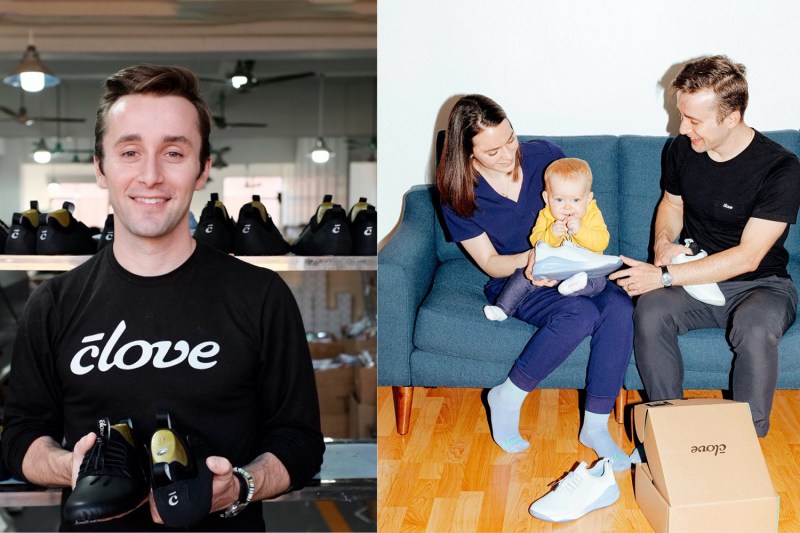
You enter the Wharton MBA program at the University of Pennsylvania with an idea, and Joe Ammon, 32, had one. He was fresh from a New York firm working as part of a machine that would help buy companies for other companies — boring stuff, really, the big fish eats the little fish, etc. — and the Ohio native was now striking out on his own, to launch his own business and wrest his opportunity at the startup helm. His co-pilot was his wife, Tamara, who made the move to Philadelphia with him and quickly got a job at Penn Medicine as a registered nurse. But as Ammon spent those early fall days of 2017 immersing himself in his school’s entrepreneurial culture and working on his nascent business plan, he noticed something almost by chance: Tamara was buying a hell of a lot of shoes.
Related Guides
We’re not talking stilettos and flats; Tamara was searching for footwear to support her body through the average 26 miles a nurse will walk in a typical workweek. Oh, and they had to also be somewhat cleanable, as there are not a few fluids flying around the average workplace. Ammon says she bought four pair of shoes in as many months, spending at least $500 on the haul, and yet she still wasn’t satisfied. Finally, he sat her down and, with grace that many young husbands might envy, asked her straight out: “Why can’t you find what you’re looking for?” Enter Clove.
How Clove Sneakers Addresses Needs for Healthcare Professionals
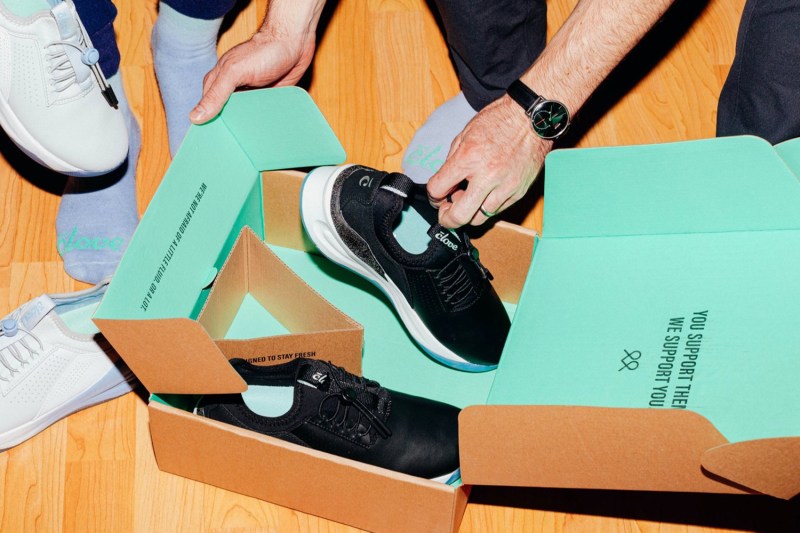
“If you talk to a group of nurses and ask about shoes, it’s going to be, like, ‘My feet are f—ing killing me,’” Ammon, from his home in Philadelphia, tells The Manual. “It’s always been a touchpoint, and the need, I knew in my bones, was there.”
It seems obvious now, in hindsight, but all brilliant ideas are obvious only after the first person says it out loud. And so here’s Ammon’s second idea: What if there were a shoe specially designed for the rigors of the nursing profession, which, as part of the healthcare industry, represents a massive and still-growing part of the U.S. and world economy? Ammon quickly dropped the initial idea he matriculated with, even now claiming that it’s not interesting enough to mention, and pivoted toward starting a nursing-specific shoe company. The only problem was that he knew essentially nothing about shoes.
Starting in early 2018, Ammon began devouring any study he could get his hands on regarding footwear design. He scratched notes on durometer numbers (essentially how soft or firm a shoe’s foam is), heel-toe offset (how far a shoe’s heel is above its forefoot), and stack height (how high the whole thing is above the ground), along with numerous other more proprietary considerations that he did not share with this writer. He also dove deep into his wife’s professional culture, surveying countless healthcare professionals as to what they liked in their
But he also thought about one of his hobbies, cycling, and one of his favorite companies, Rapha. Rapha makes incredible performance-oriented gear, but its greatest strength, which has spread far outside its niche and influenced countless other companies, is that it hews close to the culture. Eschewing the sport’s airbrushed mainstream coverage, Rapha portrayed its grueling nature and savage beauty. “I thought about holding my wife after the first time she lost a patient. She came home and just emotionally broke down,” he says. “The brand is meant to show those highs and lows, and not gloss over them, and be realistic about what it means to be a healthcare professional.”
You Support Them; We Support You
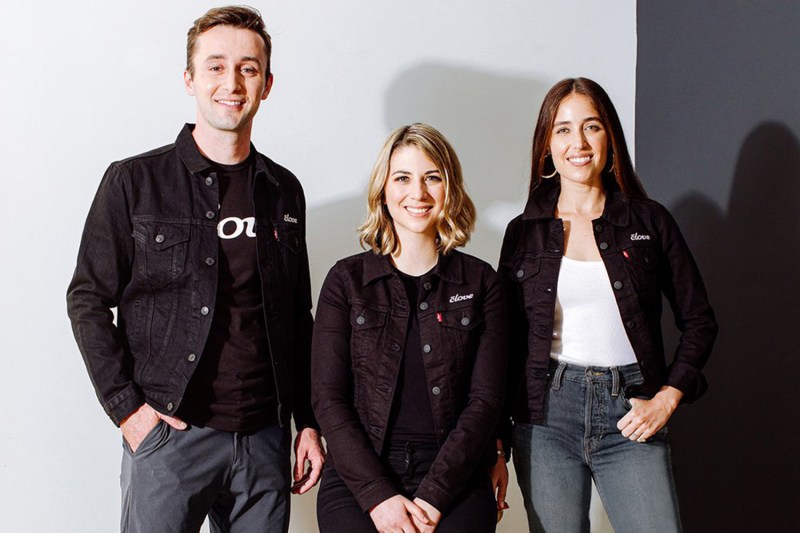
And so Clove was born out of these two facets: the performance and the culture. Ammon ensured he had the tech and feedback for the product, selecting a three-layer foam, from insole to middle layer to midsole, that dropped 10 millimeters from heel to toe. The material was the final piece, and he partnered with a Japanese company, which makes a material called Clarino, which is liquid-repellent, stain-resistant, highly durable, and with a soft feeling. It also could cleaned again and again with the same chemical wipes that nurses were using to sanitize surfaces in hospitals and clinics around the world without degrading. A bootie-style upper, sealed with a perforated neoprene, allowed heat and moisture out without letting anything in. “If you’re a labor and delivery nurse, there are real bodily fluids that you’re dealing with, so we wanted to make it so there was no permeable area for it to get on you,” he says. Even the laces were water-repellent.
The brand launched in November of 2019 with the similar lighthearted feeling that the Titanic enjoyed when disembarking, unaware that an iceberg called COVID was floating farther east. The world was heading straight toward it.
Clove Donated $200,000 of Product to Healthcare Providers
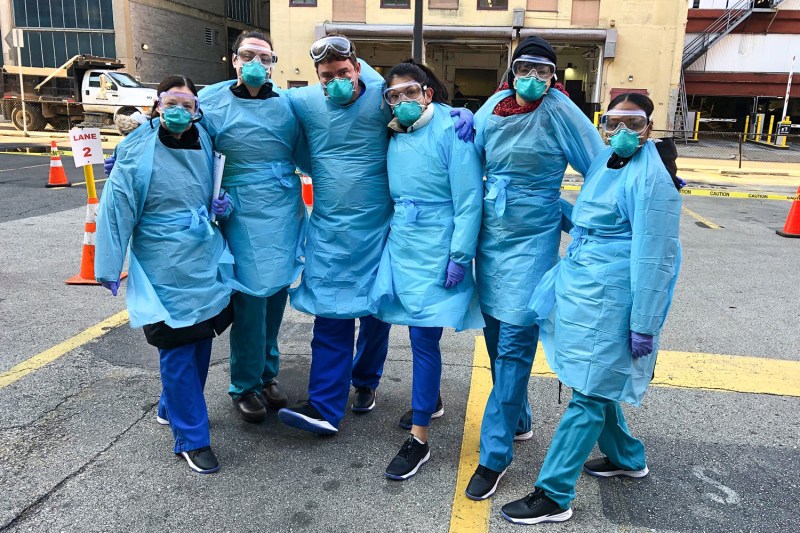
“It was nuts, walking into COVID,” Ammon says. While “front lines” became a frequently used term to describe hospitals staggering under the surge of coronavirus patients, Clove had had the term on its website from the start. But it wasn’t just terminology; Ammon, through his wife, was already intimately aware of the toll it was taking. “It accelerated our business even beyond what it was doing already,” he says.
When Ammon got word through his network of healthcare providers that the city’s first outdoor COVID testing site was opening half a block from the Clove office, the company outfitted its staff with brand-new shoes. “I still get chills when I think back on their reaction,” he says. “They had tears in their eyes, because they were scared.” With the near-visceral reaction from his company’s core demographic, Clove expanded his program around the country to nearly all 50 states, donating more than $200,000 of product to meet the demand while supporting a community under fire.
Since then, it has only strengthened that bond. Months into COVID, the company’s Instagram, normally filled with product photos and Clove-wearing healthcare professionals from around the world, asked a simple text question to its followers: How are you? Simple words elicited “thousands of responses,” Ammon remembers. “Very emotional.
“That’s the thing with this community: People weren’t paying attention to them. The didn’t realize what it took to be a healthcare professional,” he continues. “It’s been amazing to see the rest of the world realize what we knew, which is that this is an incredibly hard and emotionally taxing profession, and we should be doing everything we can to take care of these people that take care of us.”
How You Can Support
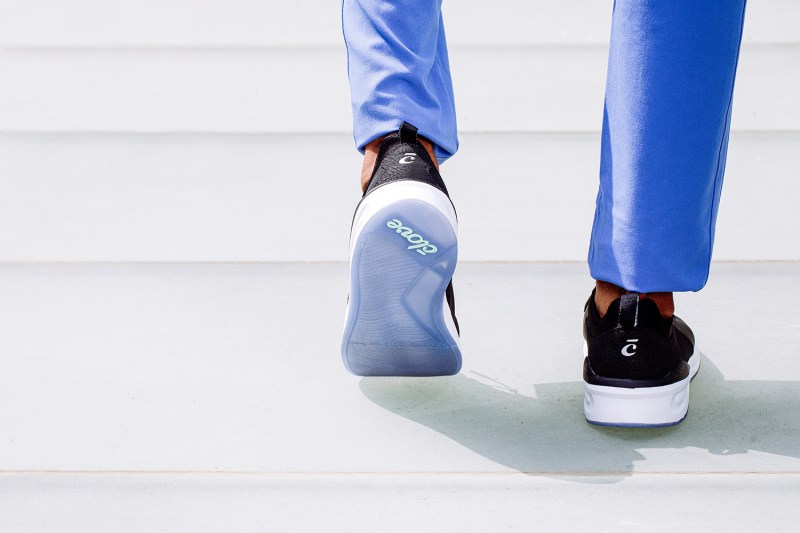
Leading a startup is fraught with challenges, but Ammon’s fledgling company has faced a unique set of circumstances that, in some ways, are shared by his customer base. Their collective feet have not only triaged a country and quelled a once-in-a-century pandemic but rolled out a widespread vaccination program to more than half the United States at the time of this writing. They are the tip of the spear, and Clove has supported their efforts, both figuratively and literally. It’s among this group that Clove has cast its lot, and Ammon is seeing his idea recognized: “If you do it right, and you show respect to them, it will catch fire,” he says.
“It’s a hive community. You work with them every day, and if they find a product that’s good for them, they’re going to talk about it,” he continues. “There’s nothing more salient than walking in to the unit and saying, ‘I have found the perfect shoe.’”
This feature is part of our Brands Giving Back Series, where we’ll bring you all the latest news on brands that are giving back to the community, and how you can support them by shopping online.



